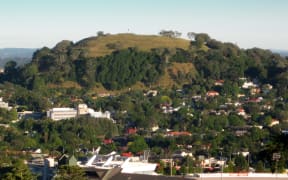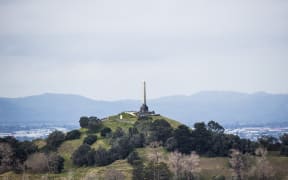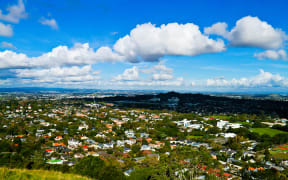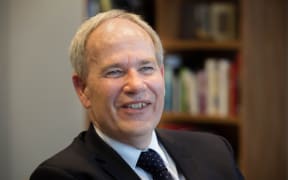Five more volcanic mountains in Auckland will have pedestrian-only access from next year.
Admiring the view from the top of Ōwairaka, or Mount Albert, today were Mark Bowden and American tourist Kristin Mente.
They arrived at the summit via their car but, as a local resident, Mr Bowden said he supported the move to remove vehicles from Auckland's volcanic cones.
"We walk up here every day and the cars are an inconvenience, so I don't see a problem with that."
Almost all cars have been restricted from driving to the top of the city's highest volcano, Maungawhau/Mt Eden, for more than a year now.
The Tūpuna Maunga Authority has decided five more ancestral mountains will have the same restrictions put in place next year.
The changes will affect the tihi, or top, of Maungakiekie/One Tree Hill, Maungarei/Mt Wellington, Ōwairaka/Mt Albert, Puketāpapa/Mt Roskill and Takarunga/Mt Victoria.
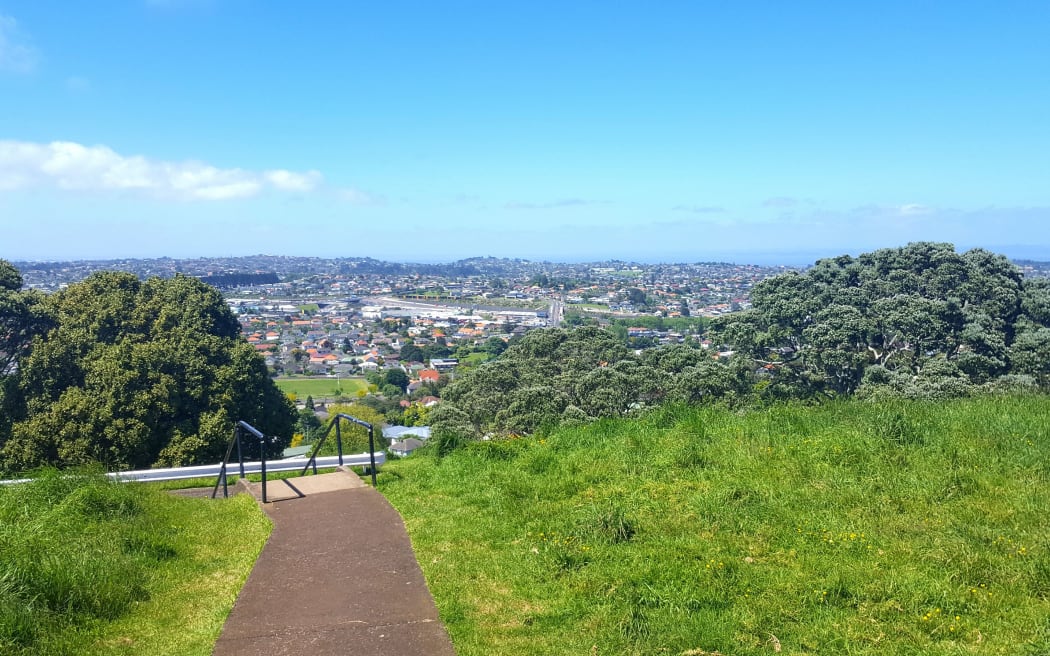
Ōwairaka/Mt Albert, pictured, will come under the vehicle ban from next year, along with Maungakiekie/One Tree Hill, Maungarei/Mt Wellington, Ōwairaka/Mt Albert, Puketāpapa/Mt Roskill and Takarunga/Mt Victoria. Photo: RNZ / Mihingarangi Forbes
Mr Bowden, a land surveyor, has a good understanding of Auckland's environment.
"We've actually done quite significant surveys all over Auckland picking up all of the topography, the kumara pits, so it's very much about heritage, something that should be retained and I think any kind of vehicles off the mountain would be good."
Two Papakura residents who were also up Ōwairaka today, however, disagreed with the ban, saying they wouldn't have half an hour free in their lunch break to walk up to the summit.
'Near misses'
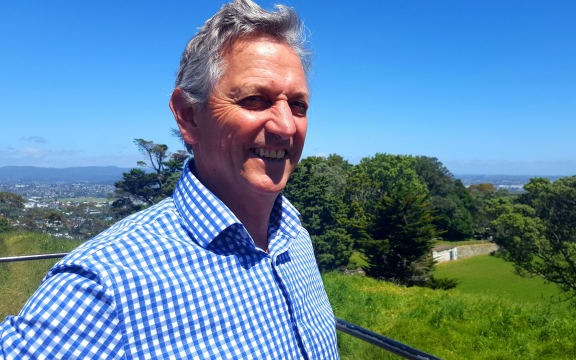
Mark Bowden Photo: RNZ / Mihingarangi Forbes
Tūpuna Maunga Authority chairman Paul Majury said it consulted with the public and undertook a number of surveys, which found much of the community supported the move.
The surveys had found the summit roads were narrow and at times dangerous, he said.
"The weekend traffic counts were quite high in terms of pedestrians and vehicles; during those surveys, a number of near misses occurred."
Another reason behind the car ban was the protection of historic sites, Mr Majury said
"There are centuries and centuries of history with these special places. They are places, literally where people have been born, they've been married, they've lived their lives.
"There has been fortified pā, there has been warfare, there has been the peace-makings that have gone on over the centuries."
The authority hoped the tihi would get a spruce-up, with new signage providing historical details of each of the maunga, he said.

